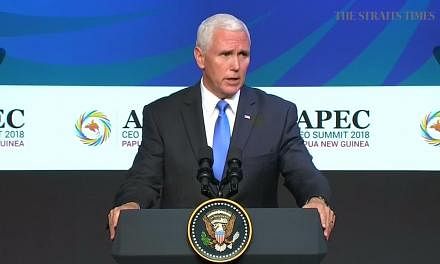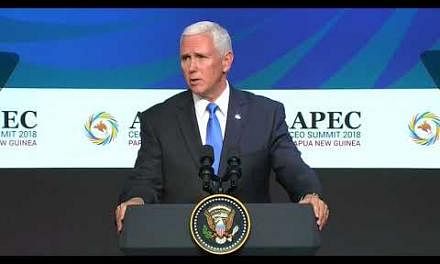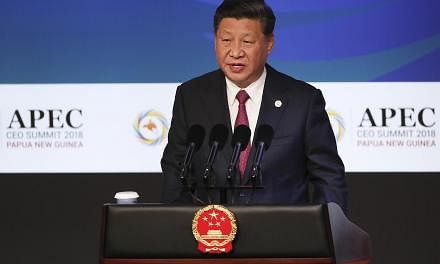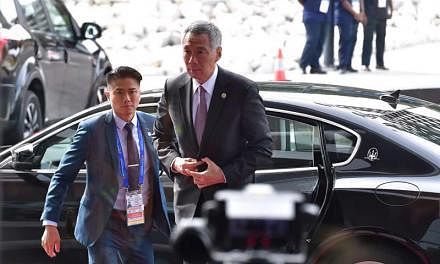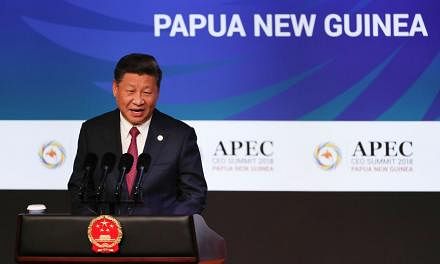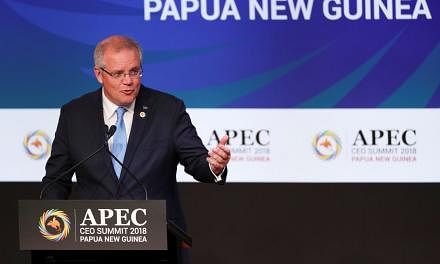PORT MORESBY (Papua New Guinea) • Prime Minister Lee Hsien Loong yesterday called on leaders of Asia-Pacific economies to do much more to shape rules for emerging areas in the digital economy, such as electronic payments and digital identity.
He made the point that virtually every type of cross-border transaction now has a digital component, such as data management, cyber security or Internet connectivity.
Speaking at the leaders' retreat of the Asia-Pacific Economic Cooperation (Apec) summit in Papua New Guinea, Mr Lee said firms such as Alibaba and Amazon Digital are turning millions of small enterprises around the world into micro-multinationals, exponentially increasing the number of participants in the digital economy.
Current trade rules have to be updated to address the increasing digitalisation of trade and accommodate more sophisticated transactions and consumers, he added.
For instance, new mechanisms to deal with cross-border flows of data are needed, Mr Lee said.
At the same time, the mechanisms must allow for regulation to keep data secure and protect privacy. Apec can do much more to advocate standards, he added.
"These progressive digital trade rules will support SMEs' digitalisation efforts, and also facilitate investments by the big players, global digital companies," he said, urging leaders to press on with initiatives to support businesses in adopting digital technologies.
Mr Lee later told the Singapore media that shared standards need to be worked out to avoid having different systems in different countries. "You have to work out access rules - so they may set up an app in Singapore, the app can operate in a different country," he said, citing how an e-payment wallet that can transfer money across countries is much more valuable than only within a country.
"We have to work out the laws, rules," he added. "Within the country, if it's overseas, what are the rules which we must apply? These are technical things which we can talk to one another (about) and we should start to work out understandings which facilitate the digital economy."
During a working lunch with Apec leaders, Mr Lee said governments have to equip their people with the skills and confidence to adapt to technological disruption and thrive in the new world.
He outlined three ways Singapore is doing so.
First, by ensuring the education system prepares students well, by focusing on content knowledge and modern skills such as critical thinking, as well as emphasising the use of technology at all levels.
Second, by helping adult workers keep their skills up to date via SkillsFuture, a national lifelong training programme. Third, by rolling out schemes to retrain displaced workers and match them to available opportunities, among others.
Said Mr Lee: "At the end of the day, skills building is at the core of our efforts, and if we do it right, our people are able to seize the new opportunities made possible by technology and innovation, and improve their lives and have a bright future."
Royston Sim


